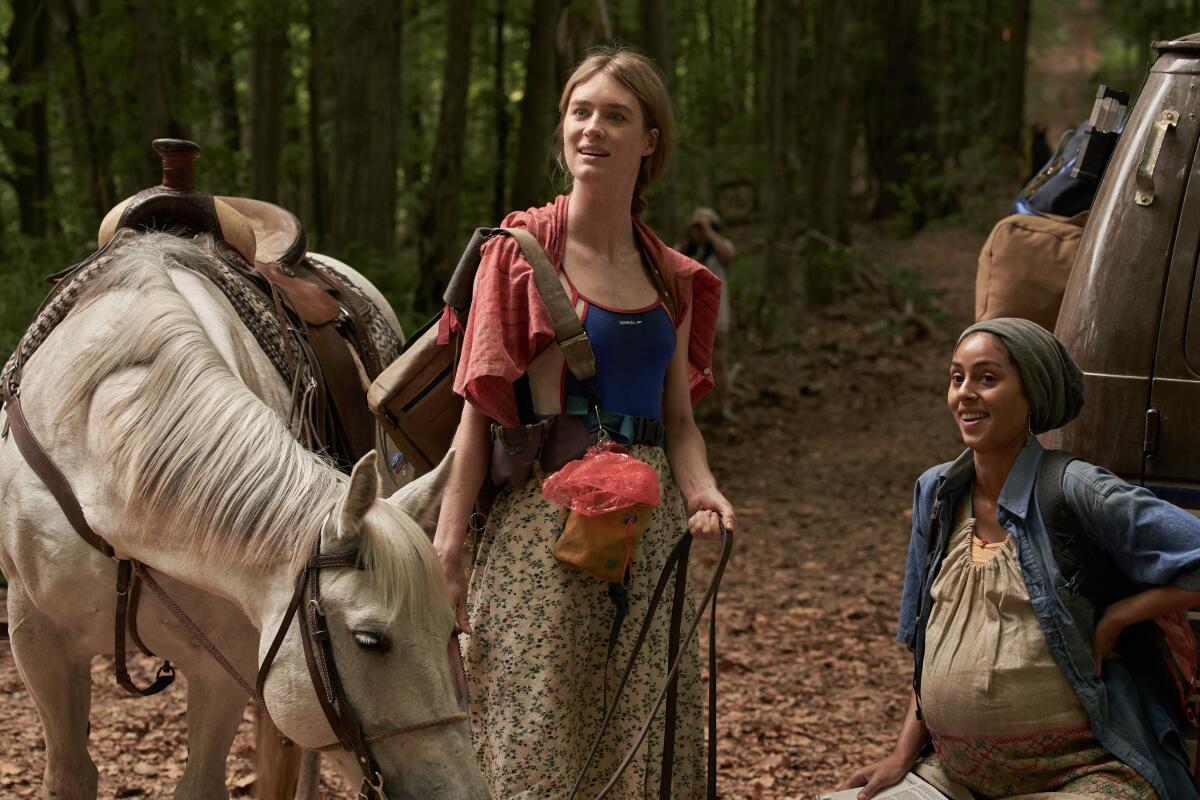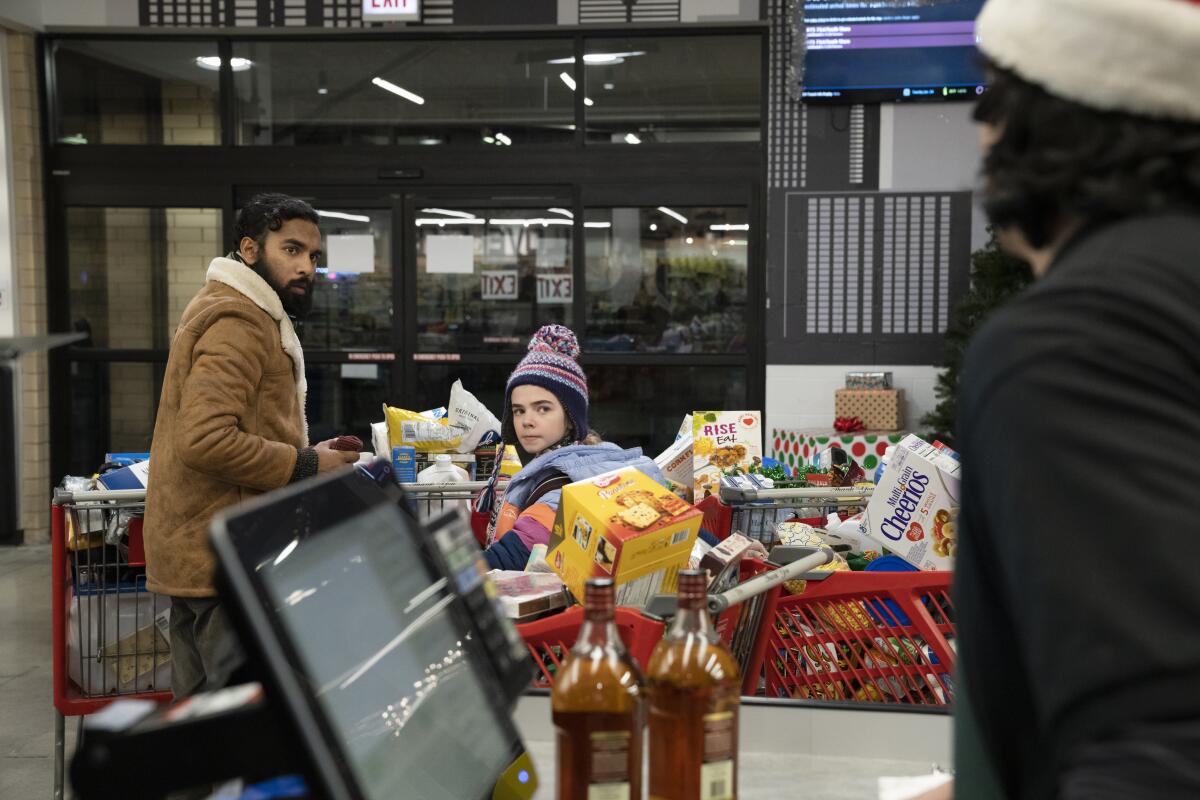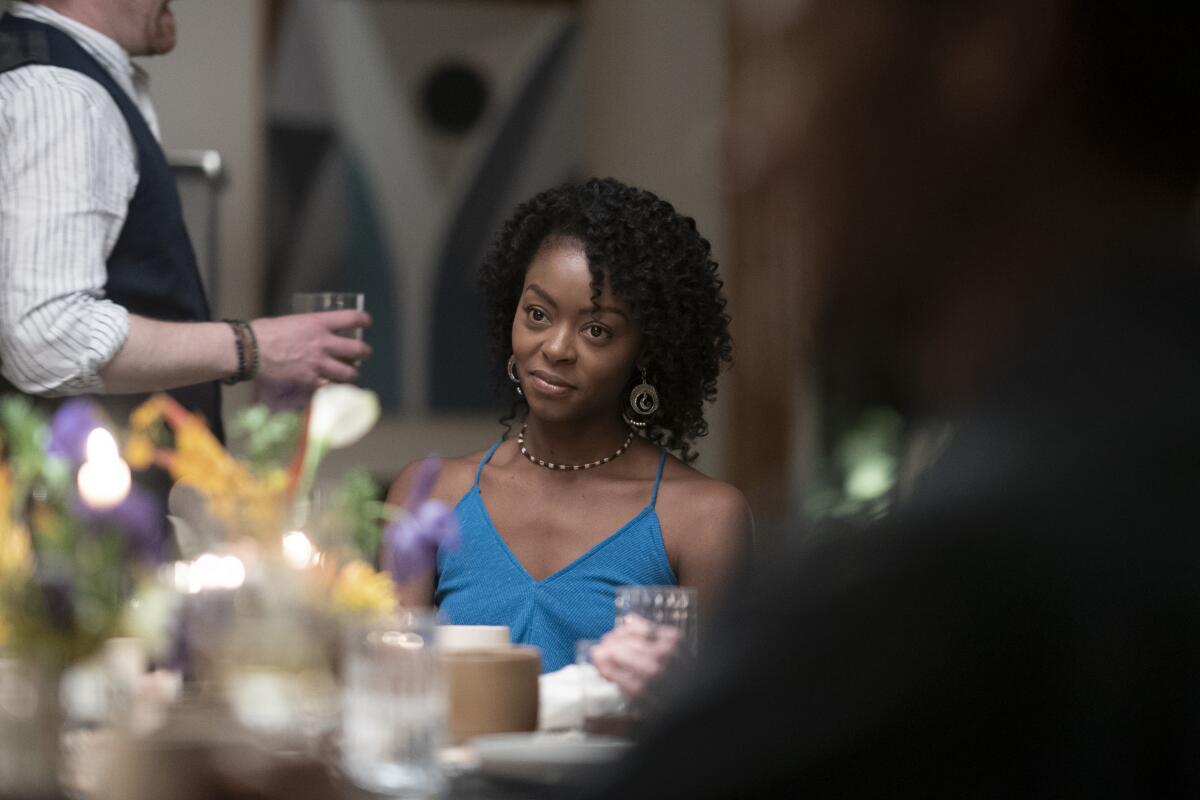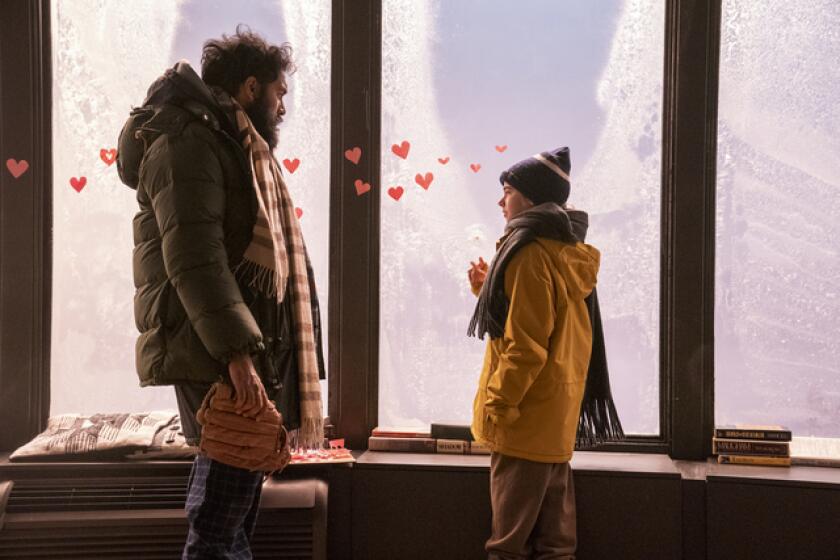‘Station Eleven’ made major changes from the book. The series creator explains why

The first minutes of “Station Eleven” take place during a stage play. When an actor suddenly pauses his lines and collapses, Jeevan, played by Himesh Patel, jumps up from his seat and rushes onstage to help. “He’s having a heart attack,” he says.
This scene is also the opening of the book on which the HBO Max series is based. In the 2014 bestseller, Jeevan is introduced as a paramedic-in-training, which is why he’s able to recognize the symptoms and begin CPR. On-screen, however, Jeevan hasn’t yet made such a career change; instead, he calls out for a doctor while looking down helplessly at the collapsed actor.
It’s a small but significant tweak, says series creator Patrick Somerville. “He’s this guy who wants to help others but is not equipped to. To help the audience be present for his journey right along with him, it made a lot more sense that his dream of becoming a healer began in a moment that we get to watch ourselves, not something that happened weeks ago that we have to tell you about in some expository scene later.”
On-screen and on the page, “Station Eleven” sprawls across numerous timelines before, during and after a devastating pandemic that nearly wipes out humanity. A finalist for a National Book Award and the PEN/Faulkner Award, the book has sold more than a million copies and has been translated into 33 languages. It remained a hot buy as COVID-19 spread throughout the world, even as its author, Emily St. John Mandel, told The Times in March 2020: “I would not recommend reading ‘Station Eleven’ in the middle of a pandemic.”
The complete guide to home viewing
Get Screen Gab for everything about the TV shows and streaming movies everyone’s talking about.
You may occasionally receive promotional content from the Los Angeles Times.
Tweaks are inevitable in any spine-to-screen adaptation, and this 10-episode series “departs significantly [from the book] in details, events, characters and characterizations,” writes Times critic Robert Lloyd, who has also deemed it one of the best shows of the year. “It jumps between periods to build out character relations and motivations, and to plant the seeds of coincidence that will flower into closure.”
Somerville got Mandel’s blessing on the adaptation’s key changes, as the series was created without her involvement. “I think we both agreed that it’ll be healthy and make more sense for both our lives and the creative process to wall it off,” Somerville says of meeting with Mandel.

“As a novelist who is also a TV writer, I can’t tell you how many times I’ve seen bad s— happen to books I love,” he adds. “A lot of times, producers think you can just do a one-to-one mapping of a novel into a script, and you just can’t. I love the book so much and wanted to do it justice, and I really loved the idea of adaptation being done at a high level in order to protect something of value.”
Throughout the process, the creative team prioritized expectations from the wide “Station Eleven” readership. “The bar is incredibly high, not just in casting and storytelling but also in the details: How do you make these things, which someone just wrote from her imagination, functional and real on-screen?” says executive producer Jessica Rhoades. “Authors everywhere create things, but you actually don’t have to make choices about what they look like. We had to make these decisions knowing that the audience who loves the book is waiting to see what we chose.”
Flawed but engrossing, the craft of HBO Max’s post-post-apocalyptic tale masks its narrative imperfections: As in the Bard, plot gives way to poetry.
The changes are evident throughout the first three episodes, now streaming on HBO Max. For example, much of the action takes place in Chicago, where Somerville lived for nine years, rather than Mandel’s native Toronto, because “the architecture of that town speaks to the specificity of the places in Episode 1.” (Ironically, after all productions were paused because of the COVID-19 pandemic, “Station Eleven” was able to resume filming — in Toronto.)
Readers may be taken aback by the series’ pairing of Jeevan with Kirsten (Matilda Lawler), a child actor in the aforementioned play who is unable to reunite with her parents, for numerous foundational scenes. “In the book, the experience of the chaos from the pandemic is all internal and independent, but telling a story that way on TV is not very interesting,” says Somerville.
“We also needed the show to be funny sometimes — not to be glib about tragedies but more to get the tone we needed to make people feel safe — and it’s an absolutely comic setup to have two people who don’t know each other well, or have different ideas about what’s right and wrong, have to work together to get somewhere.”

Additionally, the third episode details a backstory and a thriller-like fate for Miranda (Danielle Deadwyler), the creator of the fictional graphic novel from which Mandel’s novel, and the HBO Max series, take their name. All of it was invented specifically for the screen.
“We started from scratch with Miranda in terms of where she came from and how that graphic novel is incredibly grounded in her character,” Somerville says of the comic that shares the title of the series. “We wanted to show the life of an artist and not do it in an eye-roll way. In the end, to us, she feels like a real person.”
What’s on-screen is what Rhoades considers “the truest form of adaptation,” she says. “When you tell someone about a book you’re reading, you don’t really tell them what it’s about plot-wise; you tell them how it makes you feel, what you love about it and what it makes you think about and how it makes you reflect on your own life. I think the same is true about the series, in that it makes you feel everything you feel when reading the book.”
That feeling is one of unlikely and yet undeniable hope that comes from a shared artistic experience, whether it be reading a book, watching a TV show or anything else. “I hope people take comfort in turning to art to get through things, as we have throughout this pandemic,” says Rhoades. “Whatever is the thing that makes you comfortable and safe and connects you to other people is the thing that matters.”
‘Station Eleven’
Where: HBO Max
When: Anytime
Rated: TV-MA (may be unsuitable for children under age 17)
More to Read
The complete guide to home viewing
Get Screen Gab for everything about the TV shows and streaming movies everyone’s talking about.
You may occasionally receive promotional content from the Los Angeles Times.








